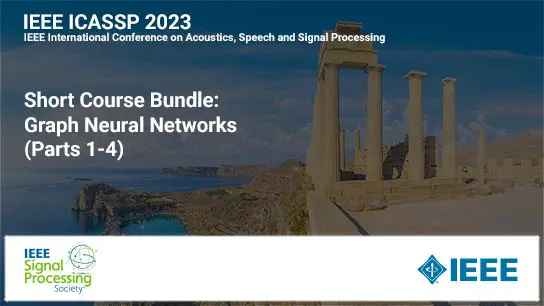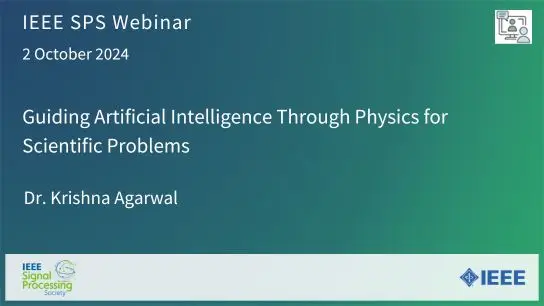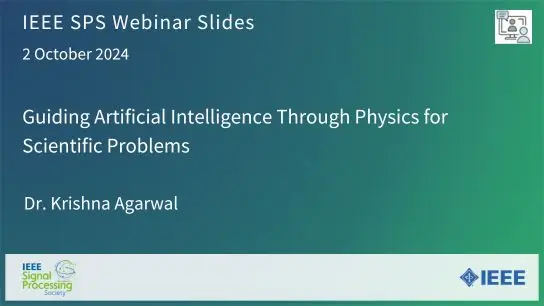-
Members: FreeSPS
IEEE Members: $11.00
Non-members: $15.00Pages/Slides: 48
28 Apr 2021
Graphs are generic models of signal structure that can help to learn in several practical problems. To learn from graph data, we need scalable architectures that can be trained on moderate dataset sizes and that can be implemented in a distributed manner. Drawing from graph signal processing, the webinar will define graph convolutions and use them to introduce graph neural networks (GNNs). It will prove that GNNs are permutation equivariant and stable to perturbations of the graph, properties that explain their scalability and transferability. These results help understand the advantages of GNNs over linear graph filters. Introducing the problem of learning decentralized controllers. This webinar will further discuss how GNNs naturally leverage the partial information structure inherent to distributed systems in order to learn useful efficient controllers. Using flocking as an illustrative example, the presenter will show that GNNs not only successfully learn distributed actions that coordinate the team, but also transfer and scale to larger teams.


